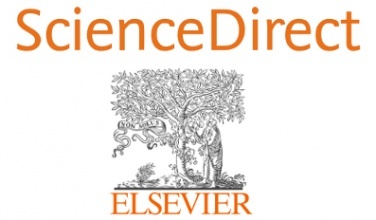The future of ScienceDirect as a source for scholarly articles is bleak with State University of New York (SUNY) canceling its subscription after a deal could not be made with its publishing company, Elsevier.
ScienceDirect is an online database that provides scholarly articles at the cost of a subscription. Recently, SUNY and Elsevier have been in negotiations regarding the renewal of SUNY’s subscription. According to Curtis Kendrick, dean of libraries and a negotiator, a subscription renewal was contingent on Elsevier significantly decreasing the cost of the subscription, which the company declined to honor. In a letter to the SUNY Library Community from the ScienceDirect negotiating team, the team highlighted their views on Elsevier’s inability to accommodate financially.
“The negotiating team’s perspective was that Elsevier did not go far enough in recognizing that the marketplace has changed, nor were they able to comprehend our dissatisfaction at the disparity between the calculated cost per full-time equivalent (FTE) between what SUNY was being charged and what our sister system, CUNY was being charged — a difference in excess of 200 [percent]” the team wrote.
Despite the deal falling through, the negotiating team developed a list of 250 core titles that SUNY plans on subscribing to from Elsevier in lieu of the entire subscription package. This resulted in 1,600 titles being made unavailable to the SUNY community due to the cost-saving initiative, according to a list published by BU Libraries.
“This approach will save SUNY institutions $7 million annually,” the team wrote. “Our forecasting indicates that with using our preexisting access to ScienceDirect content for the period 2010-19, along with Interlibrary Loan/Document Delivery and a growing body of open access content, most needs for teaching, research and scholarship should continue to be able to be met.”
The team’s plan provides room for individual campuses to add more titles to their own university subscription plans. BU has invited academic departments to provide recommendations for additional titles to be available for the University. According to Jill Dixon, associate University librarian for public services & collections, departmental recommendations can be given to Jim Galbraith, head of collection development, at jgalbrai@binghamton.edu by April 30.
“Once your recommendations are received, selection of supplemental titles will be done in consultation with the subject librarians,” Dixon wrote. “Due to our budget, there is a limit to the number of titles to which we can subscribe.”
Despite the constraints SUNY schools now face with titles, it may be possible to swap titles from the list of 250 core titles for other necessary titles, according to Dixon. Additionally, Dixon notes that BU will make an effort to choose the most necessary titles while considering the most cost-effective way to subscribe.
“From year to year, we will monitor the usage and cost of the supplemental titles,” Dixon wrote. “In particular, we will compare the cost of the subscription versus the cost to Interlibrary Loan the same number of articles accessed. We may cancel or substitute the supplemental journals in the future if the subscription is not cost-effective.”



